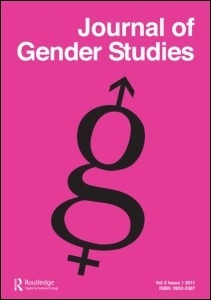Harris, L. M., Kleiber, D., Goldin, J., Darkwah, A., and C. Morinville (2016). Intersections of Gender and Water: Comparative approaches to everyday gendered negotiations of water access in underserved areas of Accra, Ghana and Cape Town, South Africa. Journal of Gender Studies. DOI:10.1080/09589236.2016.1150819
Abstract: A large and growing body of literature suggests that women and men often have differentiated relationships to water access, uses, knowledges, governance, and experiences. From a feminist political ecology perspective, these relationships can be mediated by gendered labour practices (within the household, at the community level, or within the workplace), socio-cultural expectations (e.g. related to notions of masculinity and femininity), as well as intersectional differences (e.g. race, income, and so forth). While these relationships are complex, multiple, and vary by context, it is frequently argued that due to responsibility for domestic provision or other pathways, women may be particularly affected if water quality or access is compromised. This paper reports on a statistical evaluation of a 478 household survey conducted in underserved areas of Accra, Ghana and Cape Town, South Africa in early 2012. Interrogating our survey results in the light of the ideas of gender differentiated access, uses, knowledges, governance, and experiences of water, we open up considerations related to the context of each of our study sites, and also invite possible revisions and new directions for these debates. In particular, we are interested in the instances where differences among male and female respondents were less pronounced than expected. Highlighting these unexpected results we find it helpful to draw attention to methods —in particular we argue that a binary male-female approach is not that meaningful for the analysis, and instead, gender analysis requires some attention to intersectional differences (e.g. homeownership, employment, or age). We also make the case for the importance of combining qualitative and quantitative work to understand these relationships, as well as opening up what might be learned by more adequately exploring the resonances and tensions between these approaches.
Key words: Ghana, South Africa, gender, water, methods, triangulation, intersectionality
Pre-print version is available for download HERE.
